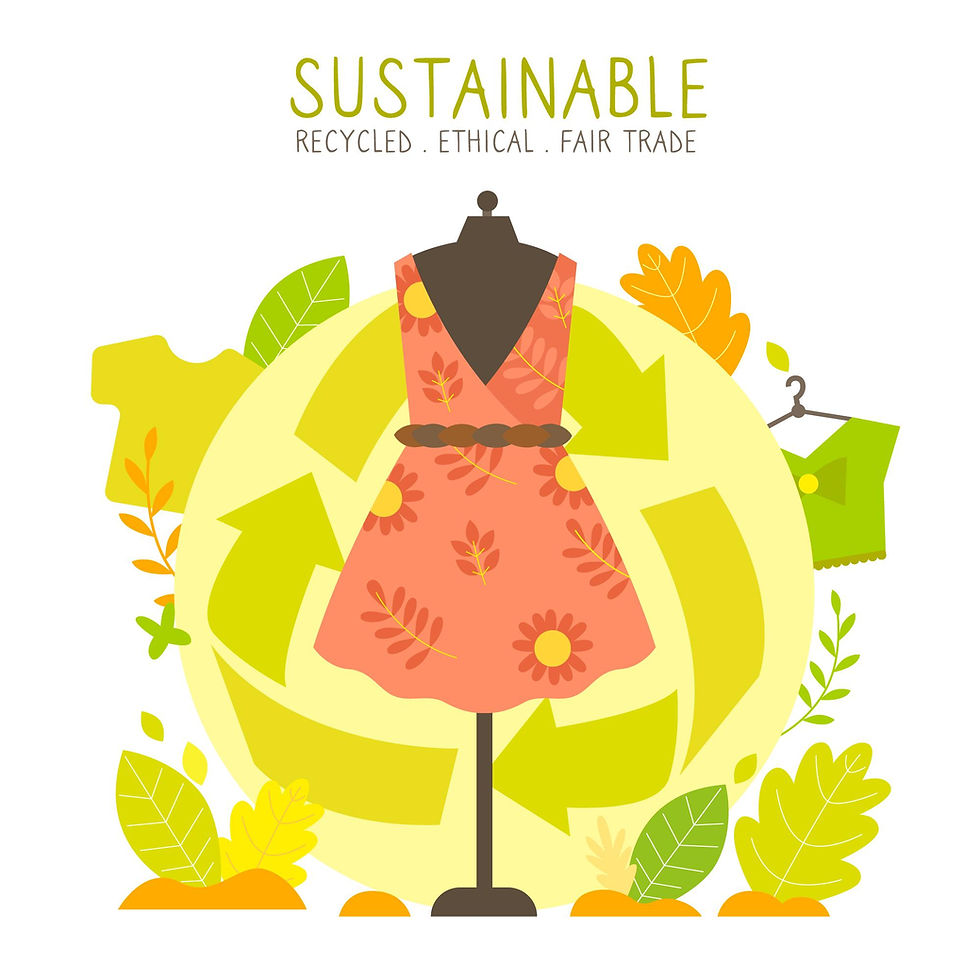Introduction
Luxury sustainability is now not an up-and-coming trend but a requirement. As climate change, resource scarcity, and ethical manufacturing become increasingly critical global issues, luxury brands are asked to own up to their environmental and social footprint. From fashion high-end houses to premium car manufacturers, sustainability is redefining the concept of luxury, so it is not merely about exclusivity but also responsibility.
Today's consumers, particularly millennials and Gen Z consumers, expect transparency, ethical sourcing, and eco-responsible production techniques from the brands they support. Luxury consumers do not mind shelling out the extra cost of sustainable products they value. Ethics and sustainability have ceased to remain a niche offering but an imperative part of branding that guarantees continued loyalty and marketplace competitiveness in luxury.

1. The Shift Towards Sustainable Luxury
Luxury brands are revolutionizing sustainability by incorporating sustainable practices into their primary business models. From using sustainably sourced materials to zero-waste manufacturing methodologies, sustainability is becoming a fundamental mainstay in luxury branding. Stella McCartney, Gucci, and Louis Vuitton lead the way with sustainability by making carbon-neutral activities, upcycling, and cruelty-free alternatives.
Increased conscious consumerism has significantly contributed to the making of sustainable luxury. Consumers are increasingly looking for brands to integrate environmental and social responsibility into their operations, directing the industry toward ethical practices. Some major sustainability trends in luxury are circular fashion (resale, rental, recycling), cruelty-free leather and fur substitutes, and carbon offsetting programs. All these contribute to keeping luxury brands desirable yet attractive to environmentally aware consumers.
2. Ethical Sourcing and Responsible Production
Supply chain transparency is vital for luxury brands adopting ethical and sustainable methods. Customers wish unambiguous and verifiable data regarding the source of materials, labourers' working conditions, and the environmental consequences of production procedures. Luxury houses like Hermès and Chopard are investing in blockchain technology to offer traceability, ensuring that raw materials such as gold, diamonds, and leather are sourced ethically.
Sustainable material is an essential aspect of sustainable luxury production. Brands are now adopting organic cotton, recycled metals, and bio-fabricated alternatives such as lab-grown leather and silk. Furthermore, fair trade practices guarantee that workers and artisans in developing nations are paid fair wages and have good working conditions. Through ethical labour policies, luxury brands increase their brand value as well as contribute positively to global communities.
3. Reducing Carbon Footprint and Sustainable Packaging
Luxury brands are embracing creative packaging techniques to lower their carbon footprint. Several high-end brands are converting to biodegradable, reusable, and refillable packaging. Chanel, for instance, has launched refillable perfume bottles, while Gucci employs FSC-certified packaging materials for responsible sourcing.
In addition to packaging, minimizing carbon footprint is of great concern to luxury brands. Carbon-neutral features are renewable energy-based manufacturing operations, sustainable logistics of supply chain operations, and carbon offset projects. Burberry and Kering Group are two major brands that have adopted ambitious targets of becoming carbon neutral to support global sustainability obligations, underpinning their leadership in accountable luxury.
4. Storytelling and Branding: How to Communicate Sustainability Effectively
Transparency is paramount while promoting sustainability in luxury. Consumers easily identify greenwashing, so it's crucial for brands to keep their activities transparent. Luxury brands have to support their claims of sustainability with certifications, third-party validation, and tangible reports of impact to gain consumer trust.
Storytelling is central to establishing an ethical brand identity. Brands can tell great stories by highlighting the artistry in sustainable products, the individuals who participate in ethical sourcing, and the positive contributions to the planet. Social media and online marketing provide influential platforms for communicating sustainability, enabling brands to communicate directly with green consumers and present their sustainable promises.
5. Challenges and Opportunities in Sustainable Luxury Marketing
The most significant hurdle to sustainable luxury marketing is defeating greenwashing accusations. Customers distrust nebulous sustainability claims and insist on proof of responsible behaviour. Companies must present transparency through third-party verifications, blockchain traceability, and sustainability reports to support their assertions.
Balancing sustainability and exclusivity is also challenging, as heritage luxury depends on scarce materials and energy-guzzling manufacturing. Yet, this is also an opportunity for innovation, like bioengineered luxury materials, high-end secondhand platforms, and sustainable collaborations. By embracing sustainability, luxury brands can stand out and win the next generation of high-net-worth consumers.
Conclusion
The future of sustainable luxury in the luxury industry is bright, with more and more brands welcoming ethical and sustainable practices. Sustainable luxury is a choice and a need led by shifting consumer attitudes and worldwide environmental issues.
Luxury brands that manage to weave sustainability into their brand values will be the leaders in the emerging market. By emphasizing fair sourcing, eco-friendly production, sustainable packaging, and honest marketing, they can strengthen consumer relationships and brand loyalty. Promoting thoughtful consumerism with ethical marketing will eventually define the future of luxury, as elegance is coupled with sustainability.
Comments